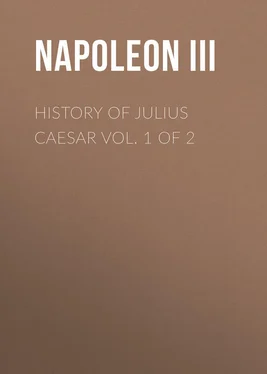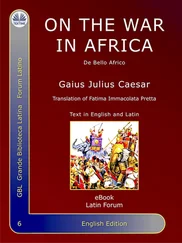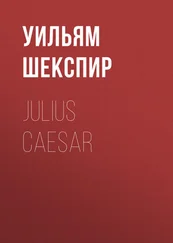Napoleon III - History of Julius Caesar Vol. 1 of 2
Здесь есть возможность читать онлайн «Napoleon III - History of Julius Caesar Vol. 1 of 2» — ознакомительный отрывок электронной книги совершенно бесплатно, а после прочтения отрывка купить полную версию. В некоторых случаях можно слушать аудио, скачать через торрент в формате fb2 и присутствует краткое содержание. Жанр: foreign_antique, foreign_prose, Биографии и Мемуары, на английском языке. Описание произведения, (предисловие) а так же отзывы посетителей доступны на портале библиотеки ЛибКат.
- Название:History of Julius Caesar Vol. 1 of 2
- Автор:
- Жанр:
- Год:неизвестен
- ISBN:нет данных
- Рейтинг книги:5 / 5. Голосов: 1
-
Избранное:Добавить в избранное
- Отзывы:
-
Ваша оценка:
- 100
- 1
- 2
- 3
- 4
- 5
History of Julius Caesar Vol. 1 of 2: краткое содержание, описание и аннотация
Предлагаем к чтению аннотацию, описание, краткое содержание или предисловие (зависит от того, что написал сам автор книги «History of Julius Caesar Vol. 1 of 2»). Если вы не нашли необходимую информацию о книге — напишите в комментариях, мы постараемся отыскать её.
History of Julius Caesar Vol. 1 of 2 — читать онлайн ознакомительный отрывок
Ниже представлен текст книги, разбитый по страницам. Система сохранения места последней прочитанной страницы, позволяет с удобством читать онлайн бесплатно книгу «History of Julius Caesar Vol. 1 of 2», без необходимости каждый раз заново искать на чём Вы остановились. Поставьте закладку, и сможете в любой момент перейти на страницу, на которой закончили чтение.
Интервал:
Закладка:
The form adopted by Rome to rule Italy was the best possible, but only as a transition form. The object to be aimed at was, in fact, the complete assimilation of all the inhabitants of the peninsula, and this was evidently the aim of the wise policy of the Camilli and the Fabii. When we consider that the colonies of citizens presented the faithful image of Rome; that the Latin colonies had analogous institutions and laws; and that a great number of Roman citizens and Latin allies were dispersed, in the different countries of the peninsula, over the vast territories ceded as the consequence of war, we may judge how rapid must have been the diffusion of Roman manners and the Latin language.
If Rome, in later times, had not the wisdom to seize the favourable moment in which assimilation, already effected in people’s minds, might have passed into the domain of facts, the reason of it was the abandonment of the principles of equity which had guided the Senate in the first ages of the Republic, and, above all, the corruption of the magnates, interested in maintaining the inferior condition of the allies. The right of city extended to all the peoples of Italy, time enough to be useful, would have given to the Republic a new force; but an obstinate refusal became the cause of the revolution commenced by the Gracchi, continued by Marius, extinguished for a moment by Sylla, and completed by Cæsar.
Strength of the Institutions.
XI. At the epoch with which we are occupied, the Republic is in all its splendour.
The institutions form remarkable men; the annual elections carry into power those who are most worthy, and recall them to it after a short interval. The sphere of action for the military chiefs does not extend beyond the natural frontiers of the peninsula, and their ambition, restrained in their duty by public opinion, does not exceed a legitimate object, the union of all Italy under one dominion. The members of the aristocracy seem to inherit the exploits as well as the virtues of their ancestors, and neither poverty nor obscurity of birth prevent merit from reaching it. Curius Dentatus, Fabricius, and Coruncanius, can show neither riches nor the images of their ancestors, and yet they attain to the highest dignities; in fact, the plebeian nobility walks on a footing of equality with the patrician. Both, in separating from the multitude, tend more and more to amalgamate together; 222but they remain rivals in patriotism and disinterestedness.
In spite of the taste for riches introduced by the war of the Sabines, 223the magistrates maintained their simplicity of manners, and protected the public domain against the encroachments of the rich by the rigorous execution of the law, which limited to five hundred acres the property which an individual was allowed to possess. 224
The first citizens presented the most remarkable examples of integrity and self-denial. Marcus Valerius Corvus, after occupying twenty-one curule offices, returns to his fields without fortune, though not without glory (419). Fabius Rullianus, in the midst of his victories and triumphs, forgets his resentment towards Papirius Cursor, and names him dictator, sacrificing thus his private feelings to the interests of his country (429). Marcus Curius Dentatus keeps for himself no part of the rich spoils taken from the Sabines, and, after having vanquished Pyrrhus, resumes the simplicity of country life (479). 225Fabricius rejects the money which the Samnites offer him for his generous behaviour towards them, and disdains the presents of Pyrrhus (476). Coruncanius furnishes an example of all the virtues. 226Fabius Gurges, Fabius Pictor, and Ogulnius, pour into the treasury the magnificent gifts they had brought back from their embassy to Alexandria. 227M. Rutilius Censorinus, struck with the danger of entrusting twice in succession the censorship in the same hands, refuses to be re-elected to that office (488).
The names of many others might be cited, who, then and in later ages, did honour to the Roman Republic; but let us add, that if the ruling class knew how to call to it all the men of eminence, it forgot not to recompense brilliantly those especially who favoured its interests: Fabius Rullianus, for instance, the victor in so many battles, received the name of “most great” ( Maximus ) only for having, at the time of his censorship, annulled in the comitia the influence of the poor class, composed of freedmen, whom he distributed among the urban tribes (454), where their votes were lost in the multitude of others. 228
The popular party, on its own side, ceased not to demand new concessions, or to claim the revival of those which had fallen out of use. Thus, it obtained, in 428, the re-establishment of the law of Servius Tullius, which decided that the goods only of the debtor, and not his body, should be responsible for his debt. 229In 450, Flavius, the son of a freedman, made public the calendar and the formulæ of proceedings, which deprived the patricians of the exclusive knowledge of civil and religious law. 230But the lawyers found means of weakening the effects of the measure of Flavius by inventing new formulæ, which were almost unintelligible to the public. 231The plebeians, in 454, were admitted into the college of the pontiffs, and into that of the augurs; the same year, it was found necessary to renew for the third time the law Valeria, de provocatione .
In 468, the people again withdrew to the Janiculum, demanding the remission of debts, and crying out against usury. 232Concord was restored only when they had obtained, first, by the law Hortensia, that the plebiscita should be obligatory on all; and next, by the law Marcia, that the orders obtained through Publilius Philo in 415 should be restored to vigour. These orders, as we have seen above, obliged the Senate to declare in advance whether or not the laws presented to the comitia were contrary to public and religious law. 233
The ambition of Rome seemed to be without bounds; yet all her wars had for reason or pretext the defence of the weak and the protection of her allies. Indeed, the cause of the wars against the Samnites was sometimes the defence of the inhabitants of Capua, sometimes that of the inhabitants of Palæopolis, sometimes that of the Lucanians. The war against Pyrrhus had its origin in the assistance claimed by the inhabitants of Thurium; and the support claimed by the Mamertines will soon lead to the first Punic war.
The Senate, we have seen, put in practice the principles which found empires and the virtues to which war gives birth. Thus, for all the citizens, equality of rights; in face of danger to their country, equality of duties and even suspension of liberty. To the most worthy, honours and the command. No magisterial charge for him who has not served in the ranks of the army. The example is furnished by the most illustrious and richest families: at the battle of Lake Regillus (258), the principal senators were mingled in the ranks of the legions; 234at the combat near the Cremera, the three hundred and six Fabii, who all, according to Titus Livius, were capable of filling the highest offices, perished fighting. Later, at Cannæ, eighty senators, who had enrolled themselves as mere soldiers, fell on the field of battle. 235The triumph is accorded for victories which enlarged the territory, but not for those which only recovered lost ground. No triumph in civil wars: 236in such case, success, be what it may, is always a subject for public mourning. The consuls or proconsuls seek to be useful to their country without false susceptibility; to-day in the first rank, to-morrow in the second, they serve with the same devotion under the orders of him whom they commanded the previous day. Servilius, consul in 281, becomes, the year following, the lieutenant of Valerius. Fabius, after so many triumphs, consents to be only lieutenant to his son. At a later period, Flamininus, who had vanquished the King of Macedonia, descends again through patriotism, after the victory of Cynoscephalæ, to the grade of tribune of the soldiers; 237the great Scipio himself, after the defeat of Hannibal, serves as lieutenant under his brother in the war against Antiochus.
Читать дальшеИнтервал:
Закладка:
Похожие книги на «History of Julius Caesar Vol. 1 of 2»
Представляем Вашему вниманию похожие книги на «History of Julius Caesar Vol. 1 of 2» списком для выбора. Мы отобрали схожую по названию и смыслу литературу в надежде предоставить читателям больше вариантов отыскать новые, интересные, ещё непрочитанные произведения.
Обсуждение, отзывы о книге «History of Julius Caesar Vol. 1 of 2» и просто собственные мнения читателей. Оставьте ваши комментарии, напишите, что Вы думаете о произведении, его смысле или главных героях. Укажите что конкретно понравилось, а что нет, и почему Вы так считаете.












